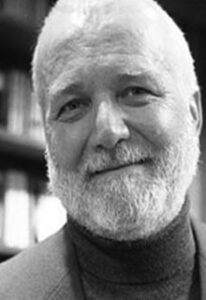rev. of Child in Amber by Stephen McNally
Child in Amber
Poems by Stephen McNally. University of Massachusetts Press, $20.00 cloth. Reviewed by Peter Jay Shippy.
Tomaz Salamun wrote that every true poet is a monster. If so, perhaps it is because monsters slap us into a sweet apoplexy from which we can’t escape ourselves. The poems in Stephen McNally’s Juniper Prize-winning first collection speak “with the unwavering clarity / of a hysterical child” (“Their Voices”), wondrously lost in worlds “without homes, without desire for them” (“The Final Despair”). It is our good magic that McNally’s travelers — his
voyants in the Symbolist sense — are never at a loss for language. And while some poems knowingly nod to Desnos, Cavafy, and Vallejo, they are at all times American poems about the democratic decay of the American century.
McNally’s dispossessed speakers see their futures in a diner’s meat loaf special; they are accosted by the insane in post offices; they visit the spots where children died; they transform TV test patterns into oracles. As the conquistador narrator of “Report From the Interior” says, “Anyone looking at us might say we’re madmen just released, / or a group of religious fanatics sent out on a goose chase by a trickster god / who dresses us in bright armor.” And what happens when there are no arms to discover or conquer? McNally looks inward for buried treasures or often up at beautiful, yet oblique, fields of stars. His people get into their cars and drive for the sake of movement — terrified that even as the creep of existence is catalogued, the miracle just slipped by. The speaker of “There’s Really No Reason I Should Worry, Since There’s No Way of Knowing What’s Really Going On” says, “The day Jesus comes back I’ll / be at the grocery store bending over meat . . .”
Child in Amber shows us that while the mysteries of existence may be beyond rational explanation, gods are in the grammar of trying. McNally is a brave and excellent guide. In “Sentenced,” he writes, “my front door was the entrance to Hell. / But I went inside anyway.” His monsters descend so we can, if not ascend, at least hover.
Peter Jay Shippy’s work has appeared in Ploughshares, The Denver Quarterly, Epoch,
and elsewhere. He teaches at Emerson College.

